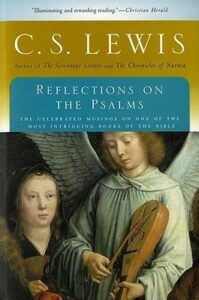Please join us in person or via Zoom*.
Reflections on the Psalms explores the complexities and emotional depth of the Psalms, addressing challenges modern readers face, such as understanding their poetic nature and the themes of judgment and praise. Lewis emphasizes the joy and delight in God expressed through these ancient texts, encouraging readers to engage with them as a means of deepening their faith.
As Lewis divines the meaning behind these timeless poetic verses, he makes clear their significance in our daily lives, and reminds us of their power to illuminate moments of grace.
*To join via Zoom, please send an email to info@lewissociety.org with your zip code.
*Meetings are held 7 – 9 p.m., Pacific time
100 Swan Way, Suite 206, Oakland, CA



